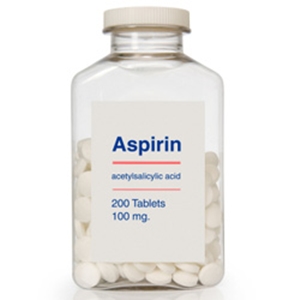
US health officials are making a high-tech screening device available in Africa to help spot counterfeit malaria pills in hopes that the technology may eventually be used to combat the fake drug trade worldwide.
The Food and Drug Administration announced that US partners in Ghana will begin using a US -developed handheld device to screen for fake or diluted versions of two common malaria pills.
More than a third of malaria-fighting pills used in Africa and Asia are either fake or bad quality, according to a study released last year. Rampant drug counterfeiting has undermined efforts to fight the mosquito-borne disease, which causes fever, chills and flu-like illness. Malaria kills more than 660 000 people each year, more than 90% of them in Africa.
If the FDA's counterfeit detection device, or CD-3, proves effective in Ghana, the agency hopes to mass produce it on an international scale, which could ultimately reduce counterfeiting around the world.
Counterfeit medicines have long been a problem in developing regions like Africa and Asia, but more fake drugs have been making their way to US pharmacies and hospitals as drug supply chains increasingly stretch across continents.
Over 80% of the active ingredients used in US pharmaceuticals are now manufactured overseas, according to one congressional estimate.
"We live in a world where the marketplace is increasingly global, where the supply chain of drugs is increasingly vulnerable and we are seeing many more problems with substandard and counterfeit drugs around the world," said FDA Commissioner Margaret Hamburg, in an interview with The Associated Press.
"Unfortunately developing economies are the most burdened by this problem, but we've had serious threats to health in this country as well."
Last year the FDA issued three separate warnings about counterfeit versions of the Roche cancer drug Avastin that were sold to US cancer clinics and hospitals. An unknown amount of those fakes was administered to patients.
Five years earlier, hundreds of Americans suffered severe allergic reactions and at least 80 died from taking a contaminated blood-thinning ingredient imported from China.
Most counterfeit operations are based in countries with weak regulatory standards, like China, India or Turkey.
The fake or substandard drugs can make their way to Africa, Europe or the US through complicated international networks of medical wholesalers and suppliers.
Fake drugs with no malaria-fighting ingredient can lead to deaths when patients rely on them, and those containing some active ingredients — but not enough to cure the disease — are also problematic because they promote resistance that can eventually outsmart medicines and render them useless.
FDA officials say this trend could eventually threaten Americans.
The CD-3
"If anti-malaria drug resistance develops in Ghana and other regions it impacts us because it means that strains of malaria are circulating and anyone can be exposed to them when they're travelling, or when people who are infected come into this country," Hamburg said.
The FDA initiative in Ghana follows the recommendation of a recent report by the Institute of Medicine, which concluded that making detection technology available to developing countries could help curb drug counterfeiting.
Designed by FDA forensic scientists, the CD-3 is a battery-operated device that shoots different wavelengths of light at a product to determine its authenticity. The device, which is about the size of a barcode scanner, compares scanned images to a stored image of the original product, picking up minute differences in packaging, pill colour or shape.
The FDA has used the device since 2010 to screen a number of products imported to the US including cosmetics, food, medical devices and cigarettes.
The FDA plans to provide 10 scanners to Ghana, which will be used to screen drugs at five laboratories in towns around the country. These labs are run by the US Pharmacopeial Convention, a nonprofit group that sets quality standards for medicines used in the US and 140 other countries.
Regulators are interested in whether the device can detect fake versions of two widely used malaria pills: Malarone from GlaxoSmithKline, and Coartem from Novartis.
The accuracy of the CD-3's readings will be verified at a national laboratory, where the composition of the drugs will be tested using traditional methods.
Funding for the work comes from a combination of public and private sources, including the US Agency for International Development and the Skoll Global Threats Fund, founded by former eBay President Jeff Skoll.
FDA officials say each CD-3 currently costs about $1 000 (R9 042) to produce. However,
regulators hope that the cost will come down after the device is mass produced.
The agency said New York manufacturer Corning Inc. has signed an agreement to
develop the technology for mass production based on its performance in Ghana.




 Publications
Publications
 Partners
Partners











